Welcome to the World
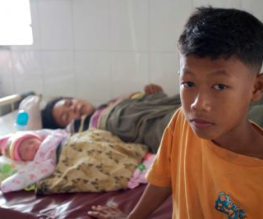
Welcome to the World, from Century Films and Brian Hill, follows women in their pregnancy, childbirth and beyond, in some of the most disparate locales on Earth – USA, UK, Cambodia and Sierra Leone. Its intention is to celebrate how miraculous childbirth is, as well as demonstrate the risk and occasional horror that children have in even getting here. It has a definite message – appreciate how lucky you are simply to have been born in the right place and the right time – and communicates this message not through the usual heavy-handed commentary (although, admittedly it does open with that) but by simply letting the remarkable footage they collected speak for itself.
Welcome to the World is initially an odd mix of numbers and human interest. We are thrown statistics that shock, yet seem oddly distant at first. The epidemiological statistics about mortality rates in Sierra Leone are the worst – 1 in 8 women die in childbirth, there are only 78 midwives in the entire country, and the infant mortality rates there beggar belief – but abstract numbers are easy to ignore for any mind willing to do so. What is truly effective about Welcome to the World is how we are shown these numbers affecting real lives. The simple statistics cease to be just interesting factoids about the people you are watching, to feeling immediate and pressing.
Sierra Leone also features the most difficult scenes to sit through. Although Médecins Sans Frontières are shown to be doing an admirable job considering how stretched they are, sometimes it is just not enough. The consequences of lacking a proper medical infrastructure – the still-born children and the women on their death bed from uterine hemorrhaging – are shown in uncompromising detail. It coaxes out such an array of emotions – sympathy, disgust, anger and a deep, deep sadness can be felt by both the obviously frustrated doctors and the viewer.
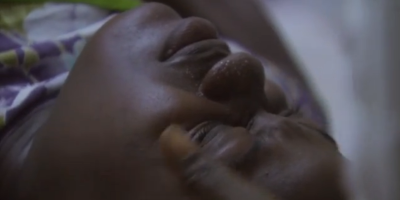
The footage from Cambodia highlights the continuing complications of HIV on a mother-to-be. As in Sierra Leone, it is occasionally difficult to watch, the emotional bramble-patch being as present as ever, but Welcome to the World never feels manipulative or gratuitous. The genuine love that the featured mothers have for their children, as well as their hardship, is effectively communicated.
Most surprising, if perhaps the least shocking, of the locations was the US. In a country with vastly different conditions between the rich and the poor, people in the lower brackets of society often get forgotten amongst the glitz and glamor of the America that is presented to those abroad. Following the lives of families within the Homeless Prenatal Program, we are shown how much support pregnant women are given, even homeless women, simply be being in the right country.
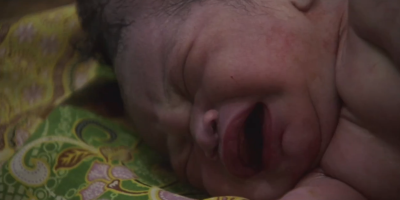
A definite theme emerges during the course of the documentary – although much of the focus of the film is taken up with the abject horror of giving birth and raising children in the worst of conditions, the film is also a celebration of life. The women who experience pregnancy in affluent nations may find childbirth hard enough (and for good reason), but the women in the documentary who go through such odds and still walk away loving mothers are truly phenomenal. Yet, as the documentary highlights, these situations, as full of drama and horror as they are, are daily occurrences around the world.
Childbirth is certainly not where the film ends either. The difficulties of caring for children when you have absolutely nothing seems unimaginable to those who have led relatively comfortable lives. The prospect of having your child’s future determined entirely by your own circumstances is a hard one to swallow. Welcome to the World shows how predetermined the quality of our lives are. This is an especially unfortunate conclusion when the mothers we follow in the film universally wish for their children to have an education, to make something of themselves and to lead happier, easier lives than they.
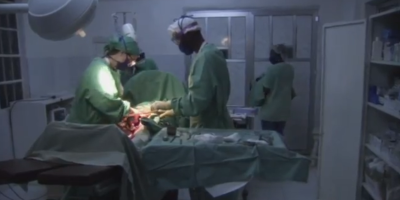
Welcome to the World is an excellent documentary. It is graphic, but not needlessly so. It’s remarkable that the makers of the documentary have managed to hit a magic note: the footage does not shy away from the uncomfortable, but it also never feels gratuitous. Brian Hill should be applauded for dealing with such a difficult and important subject matter such as this. Hopefully his efforts should be reflected in further nominations for his work.
This is an important documentary. Not only for pregnant women, or healthcare professionals, but for humanity in general. There are no sweeping political condemnations or begging for donations here, just a powerful and evocative demonstration of some very real, very immediate problems. Welcome to the World is difficult to watch at times, but we shy away from the issues it highlights at our peril.
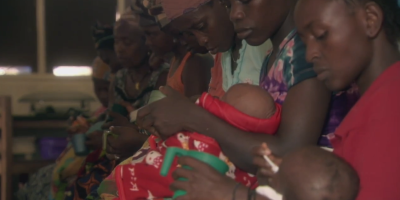
Presented by year-round documentary film festival DocHouse, Welcome to the World has its first screening at the Lexi Cinema on Thursday 8th November – that’s tomorrow! The screening also features a Q&A session by the director, Brian Hill, and you can book tickets here.

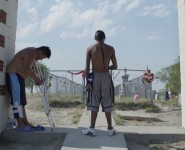

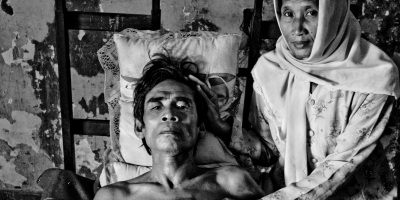

Recent Comments